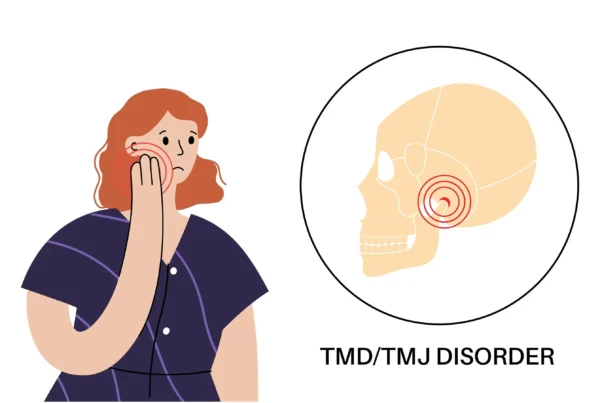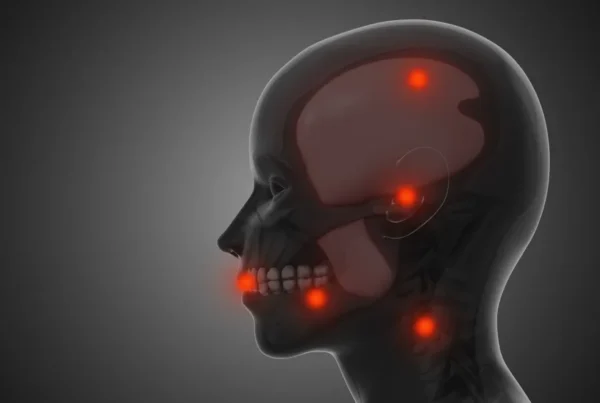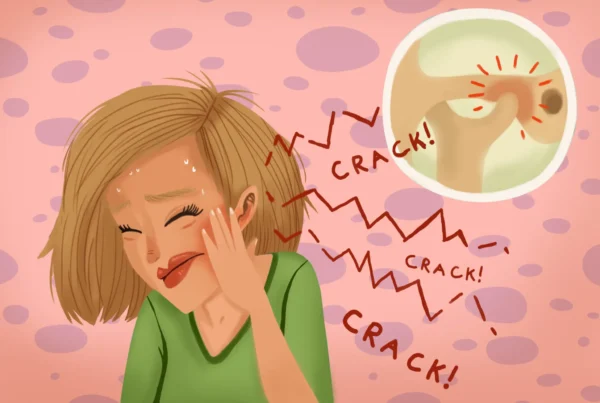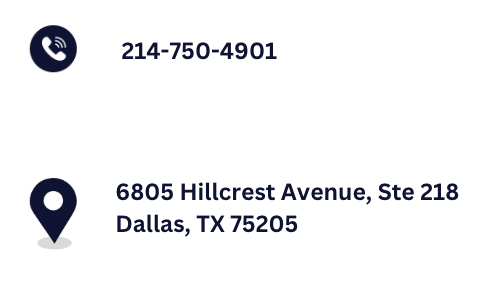TMJ pain rarely comes from one single source. At Randall Dentistry in Dallas, we frequently see how a combination of emotional stress, physical tension, and unconscious behaviors like clenching can create a pattern of jaw pain that grows worse over time. To find long-term relief, it’s critical to understand the cycle between stress and jaw function.
When stress takes hold, the body often responds in subtle but damaging ways. The jaw muscles are especially prone to holding tension. Whether you’re rushing through your day, absorbing the pressure of deadlines, or experiencing chronic anxiety, your jaw may become the silent storage space for that tension. Over time, this pressure manifests as pain, stiffness, and inflammation in the temporomandibular joint (TMJ).
One of the most common behaviors we see is daytime jaw clenching or nighttime teeth grinding, also known as bruxism. Many patients are unaware of these habits until they begin to feel symptoms like jaw fatigue, headaches, or a restricted range of motion. Once these warning signs appear, it becomes harder to reverse the damage without a professional, holistic approach.
What Is TMJ and How Does It Become Dysfunctional?
The temporomandibular joint connects your jawbone to your skull, allowing you to speak, chew, and yawn comfortably. But when this joint becomes strained, inflamed, or misaligned, it can create widespread discomfort. TMJ disorders aren’t always caused by injuries or genetic factors, more often, they stem from a buildup of small habits and tension over time.
Involuntary behaviors like jaw clenching and teeth grinding create repetitive stress. This constant pressure wears down the joint, reduces cushioning, and may eventually limit how far you can open your mouth. Misaligned bites or poor posture can worsen these effects. When the underlying structure isn’t stable, even basic actions like eating or laughing can become painful.
This is why a comprehensive evaluation is so important. At Randall Dentistry, we don’t just treat the pain, we identify what’s fueling the cycle and build a personalized strategy to restore healthy jaw movement and function.
How Stress Expresses Itself in the Jaw
Your jaw is more responsive to stress than you might think. Emotional tension triggers your nervous system, leading to tight muscles throughout the body and the jaw is often one of the first areas affected. When you’re overwhelmed, frustrated, or anxious, your body instinctively clenches, sometimes without you even realizing it.
That tightening response may seem harmless in the moment, but when it becomes habitual, it can cause significant wear and tear. Clenching your jaw throughout the day or grinding your teeth at night puts intense strain on the TMJ. As a result, patients often experience not only jaw soreness, but also headaches, earaches, or neck tension.
The pain may feel isolated to the jaw, but its roots often lie in emotional imbalance. That’s why sustainable TMJ treatment includes lifestyle awareness and stress-reduction strategies alongside physical care. Healing is most effective when we treat the mind and the body together.
TMJ Treatment Strategies That Support Whole-Body Wellness
At Randall Dentistry, we offer a multifaceted approach to treating TMJ discomfort. Our treatment plans go beyond surface-level symptom relief to address the contributing factors beneath the pain.
We often begin with:
- Custom nightguards to prevent grinding and protect the TMJ
- Bite assessments to detect alignment issues or high-contact points
- Myofunctional therapy to promote proper jaw function and posture
These dental tools work hand-in-hand with patient-focused wellness strategies. We also guide patients in adopting habits that reduce tension and encourage healing, such as:
- Practicing deep breathing or mindfulness to calm the nervous system
- Modifying diets to avoid chewy or hard foods that stress the jaw
- Applying warm compresses or doing gentle jaw exercises to improve flexibility
Each plan is customized to the individual, no two TMJ cases are the same, and our care reflects that belief.

When to Seek Help from a TMJ Expert in Dallas
You don’t have to wait until the pain becomes unbearable to seek help. Many people ignore or downplay jaw discomfort until it begins affecting their daily routines. If you’ve noticed recurring pain or tension in your jaw, it’s time to talk to a specialist.
Look out for signs such as:
- Jaw stiffness or soreness, especially in the morning
- Clicking, popping, or locking when opening your mouth
- Headaches or neck aches that seem related to jaw tension
- Unexplained tooth sensitivity or worn-down enamel
At Randall Dentistry, Dr. Drew Randall will perform a detailed examination and create a plan based on your symptoms, lifestyle, and medical history. The earlier we catch TMJ dysfunction, the more options we have for conservative, non-invasive treatment.
Education as a Key to TMJ Prevention and Recovery
One of the most powerful tools in TMJ care is education. At Randall Dentistry, we empower patients with the knowledge they need to manage their condition and avoid future flare-ups.
Our education process includes:
- Helping you identify your clenching or grinding triggers
- Teaching jaw relaxation techniques and daily movement habits
- Explaining how stress and posture affect your jaw health
We also offer printed and digital resources to support your journey. Understanding how your behavior and environment affect your jaw gives you more control over your comfort and recovery.
At-Home Practices That Support TMJ Wellness
What you do between dental visits can make all the difference. That’s why we recommend simple, consistent habits to reduce pressure and support joint stability.
Try incorporating these TMJ-friendly practices into your routine:
- Use warm compresses at the end of a long day to relax tight muscles
- Avoid chewing gum, ice, or tough meats that put stress on the jaw
- Practice breathing techniques or yoga to lower overall stress
- Perform gentle jaw stretching exercises as recommended by your provider
These habits take only a few minutes a day but can significantly improve your comfort and reduce the chances of recurring pain.
The Randall Dentistry Difference
At Randall Dentistry, we see TMJ care as more than a treatment, it’s a relationship. Dr. Drew Randall brings together advanced dental training and compassionate communication to ensure you feel heard, supported, and cared for.
We take time to:
- Understand your symptoms and how they affect your life
- Evaluate your bite, alignment, and stress-related habits
- Customize a plan that blends precision dental care with whole-body wellness
Our Dallas-based team is committed to helping you overcome TMJ pain and reclaim a more balanced, pain-free life. We’re here to guide you from the first signs of discomfort all the way through your journey to relief.
If you’re tired of dealing with jaw tension, headaches, or disrupted sleep, don’t wait any longer. Schedule your consultation a TMJ evaluation at Randall Dentistry and take the first step toward lasting relief. Schedule your consultation today.
Frequently Asked Questions
Can stress really cause TMJ pain?
Yes. Chronic stress often triggers muscle tension, especially in the jaw. This tension can lead to habits like clenching or grinding, which strain the TMJ and cause pain.
How can I reduce TMJ pain at home?
Use a warm compress, switch to softer foods, practice stress management, and avoid overuse of the jaw. Breathing techniques and jaw stretches can also help relieve tightness.
When should I see a dentist for TMJ symptoms?
If you notice frequent jaw pain, stiffness, clicking sounds, or worn teeth, it’s time to get evaluated. Early treatment can prevent complications and help you feel better sooner.
Randall Dentistry
214-750-4901
6805 Hillcrest Avenue, Suite 218
Dallas, TX 75205





